SUMMARY
This is AI generated summarization, which may have errors. For context, always refer to the full article.
![[Just Saying] Fr. Joaquin Bernas SJ: Simply a priest](https://www.rappler.com/tachyon/2021/03/tl-fr-joaquin-bernas.jpg)
“Do I want to be remembered at all?” Fr. Bernas answered my daughter, Professor Patricia Sta Maria-Cuyegkeng, in a 2015 interview for The Windhover, a Jesuit magazine.
He added: “Well, perhaps, just as someone who made a difference in the lives of people. Whether it is a good or a bad one, you know, it’s up to them, but just as someone who made a difference in their lives.”
My daughter ended her article with: “And as I listened to him, I am pretty sure that he has accomplished that as well.” Patricia is now teaching Constitutional Law at the Ateneo De Manila School of Law and previously at the Far Eastern University Institute of Law.
During the deliberations in the drafting of the 1987 Constitution on the Bill of Rights, Fr. Bernas said, “The protection of fundamental liberties is the essence of constitutional democracy. Protection against whom? Protection against the STATE (Record of the Constitutional Commission, Vol. 1, p. 674, July 17, 1986).” In very precise words, he conveyed that government can be as brutal and abusive as the leaders that run it, and when that happens, we have the Bill of Rights to run to.
On remembering EDSA 1986, he said: “There was never a moment, starting on September 21, 1972, when the nation was not moving towards EDSA. The underground struggle, the bloody encounters, the groans of torture victims, the pamphleteering, the rallies both political and religious, the silent storming of heaven by contemplative nuns, the whirl of fax machines, the electoral struggle under the most adverse circumstances, and, yes, even the ‘collaboration’ with the enemy – each in its own way contributed to the assurance of rebirth. In the end, Divine Providence, which the Filipino people had first formally invoked in its 1935 Constitution, put the pieces together and let them explode into the celebration that was EDSA.”
Years later, I was in a jam-packed public forum at the Ateneo School of Law auditorium at Rockwell during the clamor for President Estrada to resign. Somebody from the audience asked why Ateneo, a great institution, was not even thinking of removing Estrada – in the midst of growing news of his alleged serious misdeeds – from the roster of the university’s alumni. Many applauded the snarky question. Calmly, Fr. Bernas replied: “This institution does not disavow her own sons and daughters.” Clearly, he was alluding to the lessons of the biblical parable of the prodigal son. There was silence. Everybody understood.
I was a young law professor in 1994 at the Ateneo Law School when Fr. Bernas told me that there was an international convenor’s conference (APCET) about East Timor, which was then seeking independence from Indonesia. It was to be held at Malcolm Hall at the University of the Philippines (UP). Certain groups close to the Ramos administration got a lower court injunction to stop it in order not to antagonize Indonesia. Ateneo Human Rights Center (AHRC), one of the convenors, filed an urgent petition to the Supreme Court to immediately reverse the restraining order. It was granted. That was my first high-impact case. Fr. Bernas was the inspiration behind that petition, anchored on the right to free speech and UP’s academic freedom.
Then came the Davide impeachment case. The House of Representatives sought to impeach then-Chief Justice Hilario Davide. Fr. Bernas would talk to me about it. Together with other sectors, the Ateneo Human Rights Center decided to file a case in the Supreme Court to stop the impeachment. Fr. Bernas was one of the amici curiae (“friends of the court”) requested by the high court to give his opinion. When he delivered his amicus “lecture,” it was magnificent – clearly superior to the others.
After oral arguments at the Supreme Court, our team (composed of Professors Carlos Medina, Sedfrey Candelaria, Amparita Sta Maria, some AHRC interns, and myself) often gathered in his “penthouse” at the fourth floor of the Ateneo Law School, said a prayer of thanksgiving and, with him, shared a simple dinner consisting usually of adobo, white rice, vegetables, and water. And upon parting, Fr. Bernas always bid us “good work.”
Consequently, in its landmark decision halting the Davide impeachment, the Supreme Court agreed with Fr. Bernas. No other living non-jurist at that time or at any other time has been so esteemed by the Supreme Court in a crucial case. It said: “In the august words of amicus curiae Father Bernas, jurisdiction is not just a power; it is a solemn duty which may not be renounced. To renounce it, even if it is vexatious, would be a dereliction of duty.”
His opinions were sought in many other controversies, such as on the people’s initiative, the reproductive health bill, and executive privilege.
The last time I talked to him was when the Supreme Court released its martial law decision. We read it together. I pointed to him portions citing him. As always, just listening to him was inspiring. I left saying to myself, I just have to speak up and write something; maybe people will listen. He once told me that I should not think so much about the people’s reaction to my articles. I just have to write and speak out, because even if only one person listens, that is enough. The seeds are planted.
When Ateneo Law human rights and labor professor Bobby Gana unexpectedly died in a plane crash on February 2, 1998 on his way to the Sumilao farmers who were then deprived of their lands, it shocked the Ateneo community. During the Mass offered for him, Fr. Bernas gave his usual brief and meaningful homily. He said:
“The wise of the world will perhaps ask: did Bobby foolishly waste his life? I believe that one must look for answers in the faith he lived and loved. With our limited vision, we look on his death in the prime of manhood as untimely. And in our worldly vision, we might look on the manner of his life as foolishness. But I believe that the untimeliness and the foolishness both bear the imprint of his deep Christian faith. It is in this light that I look at Bobby’s life and giving up of life.”
In ending, I wish to borrow Fr. Bernas’ own words. Regarding his peaceful death, “I believe that one must look for answers in the faith he lived and loved.” Of all the hats he wore (constitutionalist, lawyer, columnist, educator, dean, university president, Jesuit provincial, amicus), he valued most his being a priest. He enlightened us not principally from his masterful works – although they did – but because when he spoke, wrote, and acted, he bore “the imprint of his deep Christian faith.” He loved us all.
During the Mass officiated for Fr. Bernas by former Ateneo Law chaplain Fr. Lito Mangulabnan SJ, somehow I felt that the celebration was for all of us who will miss his wisdom, charm, humor, passion, love of country, and homilies.
I thank God for the gift that was Fr. B. He was truly lux in domino. His memory continues to inspire. – Rappler.com
Mel Sta Maria is dean of the Far Eastern University (FEU) Institute of Law. He teaches law at FEU and the Ateneo School of Law, hosts shows on both radio and Youtube, and has authored several books on law, politics, and current events.
Add a comment
How does this make you feel?
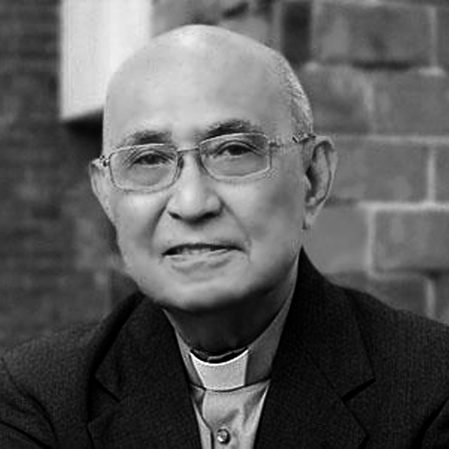
![[OPINION] Education for life: Weaving ethics in all subject areas](https://www.rappler.com/tachyon/2024/03/Education-for-Life-Weaving-Ethics-in-All-Subject-Domains.jpg?resize=257%2C257&crop_strategy=attention)
![[OPINION] Limited intake of international students: Is Canada knee-capping its future?](https://www.rappler.com/tachyon/2024/02/tl-canada-forgeign-student-cap-02232024-2.jpg?resize=257%2C257&crop_strategy=attention)
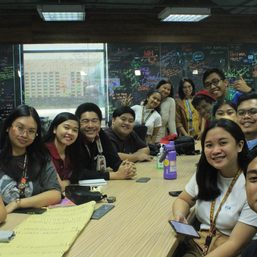
![[Rappler Investigates] Who’s fooling who?](https://www.rappler.com/tachyon/2024/02/rodrigo-sara-duterte-2019.jpeg?resize=257%2C257&crop=167px%2C0px%2C900px%2C900px)
![[EDITORIAL] Ang break-up Valentines ni Sara at Marcos](https://www.rappler.com/tachyon/2024/02/animated-2024-valentines-day-political-divorce-carousel.jpg?resize=257%2C257&crop_strategy=attention)
![[Judgment Call] Is Rappler an ‘enabler’ of Catholic ‘copycats’?](https://www.rappler.com/tachyon/2024/04/catholics-copycats-april-18-2024.jpg?resize=257%2C257&crop=418px%2C0px%2C1080px%2C1080px)
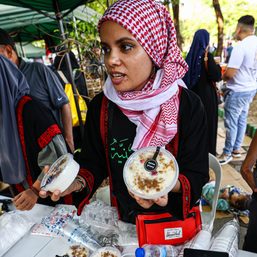
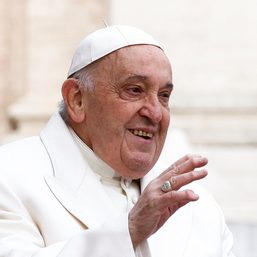
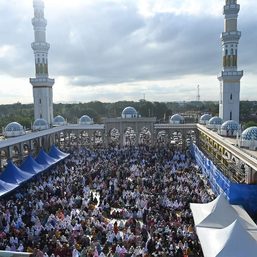
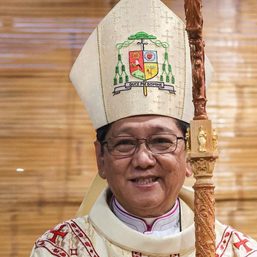
![[OPINION] ‘Some people need killing’](https://www.rappler.com/tachyon/2024/04/tl-some-people-need-killing-04172024.jpg?resize=257%2C257&crop_strategy=attention)
![[Judgment Call] Resisting mob mentality for warrantless arrests](https://www.rappler.com/tachyon/2024/04/judgement-call-mob-mentality.jpg?resize=257%2C257&crop=352px%2C0px%2C720px%2C720px)

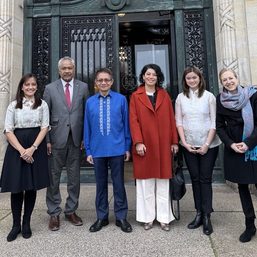
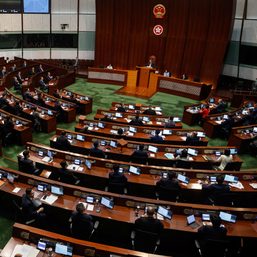
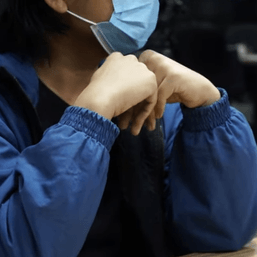
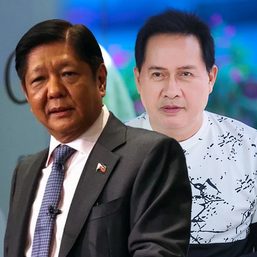


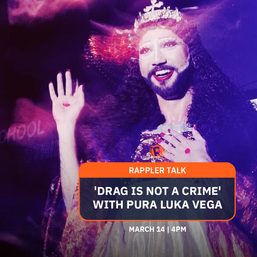
There are no comments yet. Add your comment to start the conversation.